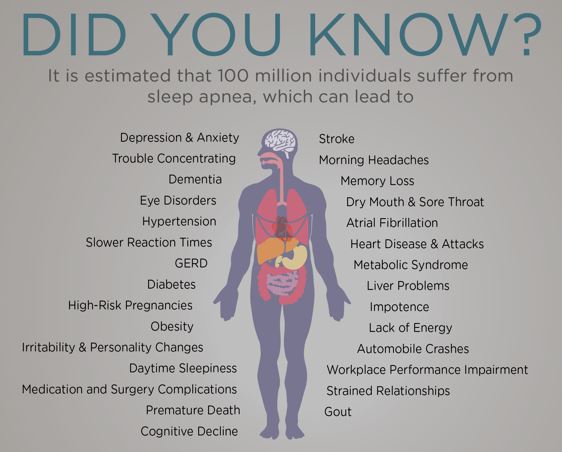Obstructive Sleep Apnea and Diabetes: Why Quality Sleep Matters
The Link Between Obstructive Sleep Apnea and Diabetes: Why Quality Sleep Matters
November is National Diabetes Awareness Month — a perfect time to highlight the powerful connection between obstructive sleep apnea (OSA) and diabetes. While these two conditions may seem unrelated, research shows they often go hand-in-hand, affecting millions of people across the U.S.
At Comprehensive Sleep Care Center, we understand that quality sleep plays a vital role in maintaining overall health — including blood sugar regulation and metabolic balance.
What Is Obstructive Sleep Apnea?
Obstructive Sleep Apnea (OSA) occurs when the airway becomes partially or completely blocked during sleep, causing breathing interruptions throughout the night. These pauses can happen dozens or even hundreds of times, leading to poor sleep quality and low oxygen levels.
Symptoms of OSA include:
-
Loud, chronic snoring
-
Gasping or choking during sleep
-
Morning headaches
-
Daytime fatigue or trouble concentrating
-
High blood pressure
The Connection Between Sleep Apnea and Diabetes
Sleep apnea doesn’t just affect rest — it can directly impact blood glucose control. Here’s how:
-
Interrupted Sleep Affects Insulin Sensitivity
Repeated awakenings from apnea episodes trigger stress hormones like cortisol, which can make the body more resistant to insulin — a key factor in Type 2 Diabetes. -
Low Oxygen Impacts Glucose Metabolism
Oxygen deprivation during sleep affects how your body uses glucose, leading to higher blood sugar levels and increased risk for diabetes complications. -
Weight Gain and Inflammation
Both OSA and diabetes are linked to obesity and chronic inflammation, creating a cycle that worsens both conditions.
In fact, studies show that over 50% of people with Type 2 Diabetes also have obstructive sleep apnea — many without realizing it.
Treating Sleep Apnea Can Improve Blood Sugar Control
The good news? Treating OSA can make a measurable difference.
Using PAP therapy (Positive Airway Pressure) or other personalized sleep treatments can help:
-
Improve insulin sensitivity
-
Reduce nighttime glucose spikes
-
Support weight loss efforts
-
Boost overall energy and mood
Patients often notice better blood sugar stability and improved A1C levels after consistent sleep therapy.
When to Get Screened
If you have diabetes — or are at risk — it’s important to ask your healthcare provider about sleep apnea screening.
Common risk factors include:
-
Excess weight or large neck circumference
-
Family history of OSA
-
High blood pressure
-
Loud snoring or excessive daytime sleepiness
Comprehensive Sleep Care Center Can Help
At Comprehensive Sleep Care Center, our team specializes in diagnosing and treating over 80 types of sleep disorders, including obstructive sleep apnea.
We offer:
-
In-lab and at-home sleep studies
-
Personalized PAP therapy support
-
Oral appliance therapy for those intolerant to PAP
-
Education and long-term care to help you achieve your best sleep health
This National Diabetes Awareness Month, take a step toward better rest and better health — because managing sleep is managing diabetes.
Schedule a Consultation Today
If you suspect sleep apnea or are struggling with diabetes-related fatigue, we can help.
Contact Comprehensive Sleep Care Center today to schedule a sleep consultation and take the first step toward healthier sleep — and healthier living.

